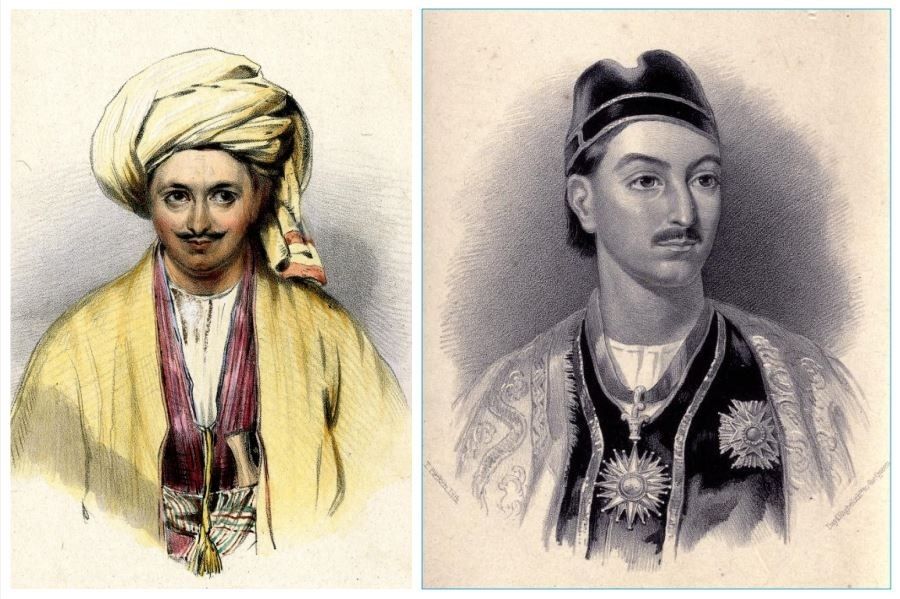Share This Article
History has a way of placing its spotlights on characters whose lives combine daredevil adventure with high-level political intrigue and mystery. Alexander Burnes was one such character-a Scottish officer in the British East India Company, who has often been called a 19th-century James Bond. With a life of espionage, diplomacy, and tragedy, Burnes’s journey through the volatile landscape of British India and Afghan politics remains a fascinating story.
The Spy in Disguise
Burnes’ career started with a flair for languages and a knack for intelligence work. Fluent in Persian, Hindustani, and a number of other local dialects, he was always destined to be used on some of the most clandestine missions run by the British Empire. His daring exploits earned him the sobriquet “Bokhara Burnes” after his trip to Central Asia, disguised as a merchant, to gather critical intelligence.

In 1831, Burnes was sent on a mission that was to establish his fame. Charged with delivering presents from King William IV to Maharaja Ranjit Singh in Punjab, Burnes seized the occasion to chart the Indus River and assess the strategic value of the region. His dispatches played an important role in formulating British policy in the subcontinent, securing his position as a player in the Great Game-the struggle between the British and Russian Empires.
The Afghan Connection
The career of Burnes in the political arena of Afghanistan was important and controversial. He had been sent as an envoy by the British to Kabul in the late 1830s to secure alliances and checkmate Russian influence. Afghanistan, under the leadership of Dost Mohammad Khan, was a cauldron of internal strife and manipulations at the hands of others. Burnes’ mission was to negotiate this treacherous terrain, but his suavity and diplomatic skills were consistently opposed by local factions and their own superiors.

Despite his efforts to establish relations with them, British authorities decided to back Shah Shuja—a deposed ruler—in a bid to install a more pliable regime. This decision thus led to the First Anglo-Afghan War, 1839–1842, a catastrophic campaign that brought into sharp relief the limits of imperial ambition. Burnes found himself entangled in the chaos, his advice frequently ignored by the British high command.
Mohan Lal: Unsung Ally
Of the several relationships that defined Burnes’ career, his collaboration with Mohan Lal is paramount. A Kashmiri Pandit and a master spy, Mohan Lal was Burnes’s indispensable ally in his Afghan missions. Fluent in many languages and well-versed in the local customs, Lal provided the much-needed intelligence and played the role of confidant in the labyrinthine politics of the region.

Together, Burnes and Lal made a fantastic team; their exploits underlined the importance of cross-cultural partnerships in espionage. While Burnes’ name entered the annals of history, that of Mohan Lal remained largely overshadowed, a reminder of the inequities of the colonial era.
Legacy and Literary Contributions
Burnes’ adventurous life found its way into his writings, especially in Travels into Bokhara, an exciting account of his travels through Central Asia. Part travelogue, part intelligence report, the book hypnotized British and other readers and offered them rare glimpses of territories that were at the time mysterious.
Not only did his work secure his reputation as a great explorer and diplomat, but it also aided future British expeditions with much information. The writings of Burnes stand as testimony to his inquisitive mind and to his position as a bridge between worlds so vastly different from one another.
A Tragic End
Alexander Burnes was killed in an eruption at Kabul in 1841. During increased opposition to British occupation, Burnes’s house was attacked by an angry mob, who brutally slaughtered him and his companions. With his death, a significant change had come about in the course of the First Anglo-Afghan War and illustrated the weaknesses of the strategy of the British.

In his tragic end, Burnes mirrored the wider failures of imperial policy in Afghanistan. He was killed not because some local grievance had burst its banks but as the final statement in a long litany of suspicion and missteps by the British administration.
Conclusion
Alexander Burnes’ is a tale of ambition, adventure, and tragedy. The “James Bond” of his time, he epitomized all the contradictions of empire-building, where intelligence and diplomacy eternally ran headlong into hubris and miscalculation. His contributions to the British Indian Army and his literary works secure his place in history, while his untimely death serves as a cautionary tale of the perils of overreach in foreign lands. Burnes’ life, much like the Great Game itself, remains a compelling chapter in the annals of history.